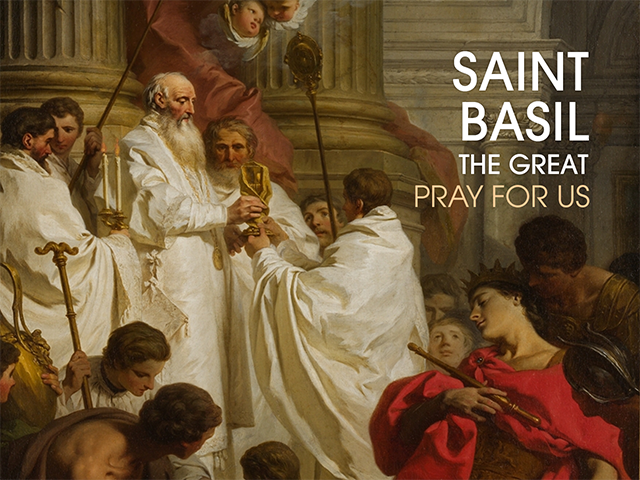



St. Basil (330 – 379 A.D.) was born to wealthy and pious parents in Cappadocia, Asia Minor (modern-day Turkey). His family was renowned for their great sanctity; his grandfather was martyred under the persecution of Roman Emperor Diocletian, and his grandmother, mother, and several siblings are all numbered among the saints. St. Basil became a monk and founded several monasteries, famously writing a monastic rule of life which has proved to be the most lasting of those in the East. He studied under the finest teachers and was a respected man of great learning, as well as a zealous defender of orthodoxy against many heresies that threatened the Catholic faith, especially Arianism. He was appointed the bishop of Caesarea and in this role became one of the most influential saints in Church history. His life of deep prayer, austerities, and humility, combined with his uncommon preaching and teaching gifts, guided him in leading one of the most politically and ecclesiastically important Sees of the day, for which he earned the name "the Great." He is a Doctor of the Church, and one of the group of three saints called the Cappadocian Fathers, together with his brother, St. Gregory of Nyssa, and his lifelong friend, St. Gregory of Nazianzus. St. Basil's feast day is celebrated on January 2nd, a shared feast day with his close friend St. Gregory Nazianzus.